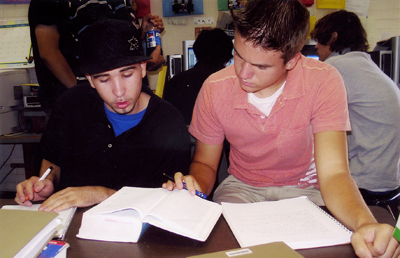All Nonfiction
- Bullying
- Books
- Academic
- Author Interviews
- Celebrity interviews
- College Articles
- College Essays
- Educator of the Year
- Heroes
- Interviews
- Memoir
- Personal Experience
- Sports
- Travel & Culture
All Opinions
- Bullying
- Current Events / Politics
- Discrimination
- Drugs / Alcohol / Smoking
- Entertainment / Celebrities
- Environment
- Love / Relationships
- Movies / Music / TV
- Pop Culture / Trends
- School / College
- Social Issues / Civics
- Spirituality / Religion
- Sports / Hobbies
All Hot Topics
- Bullying
- Community Service
- Environment
- Health
- Letters to the Editor
- Pride & Prejudice
- What Matters
- Back
Summer Guide
- Program Links
- Program Reviews
- Back
College Guide
- College Links
- College Reviews
- College Essays
- College Articles
- Back
To love or not to love!
If we, as a nation, based our curriculum on “relevance” to teens alone, the entirety of the educational system would need to be changed. Should we not teach the classics because of their relevance to teenagers? How does Charles Dickens, Jane Austen, and other famous authors relate to teenagers of this century? While Shakespeare is not “relevant” to teen’s per-say, he should still be taught in schools at the same level as he has been throughout our curriculum. Shakespeare teaches students many aspects. He teaches the students to expand their literary horizon, history and culture of different times, and life lessons taught from experiences.
Oh the “Twilight” novels. Oh the “Hunger Games”. While these are great series of books, there is no substance except for the idea of imagination. Students will expand their horizon of “words” and “proper” English by reading Shakespeare’s works. The task of reading Shakespeare may seem difficult for some, but the time spent analyzing the meaning behind Shakespeare’s writings allows students to engage their mind in a new way.
Along with student’s horizons being expanded, most will learn history from Shakespeare’s plays. Because his plays were typically related to an event in history, like Macbeth or Hamlet, students can learn history, culture, and how those days were through an interesting play with a twist. When teaching Shakespeare, many teachers believe in the motion of acting out the plays instead of reading. By doing this, students will obtain a better idea of Shakespeare’s times.
Lastly, all of Shakespeare’s pieces have lessons to be learned. His works vary from tragedy, history, comedy, etc., so all can relate to at least one play. For example, many people can relate to the famous Romeo and Juliet? Lesson: not to kill yourself just because you can’t be with the person you love at age thirteen. Among this valued lesson, his works have many more to share.
While Shakespeare doesn’t directly say “teenager”, curriculum should maintain his level of importance. Shakespeare teaches that literature is about thinking outside the box, history and learning. English is more than the top-selling books at Barnes n’ Nobles; join a book club for that.

Similar Articles
JOIN THE DISCUSSION
This article has 0 comments.
